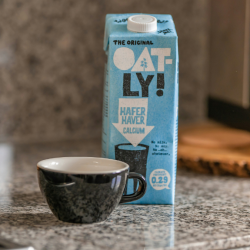Now in its sixth year, the FutureBrand Index is an annual, comprehensive study of the world’s top 100 brands. It delves into consumer perceptions, analyses the brands’ activities over the past year and calculates the most supportive – and destructive – corporate strategies.
In the 2020 Index, one theme dominated – companies’ response to COVID-19. But it wasn’t just how companies treated the end consumer that determined the winners and losers in the Top 100. Instead, it became clear that the way companies treated their employees and maintained their mental, physical and financial welfare was what struck a chord with customers.
Jon Tipple, global chief strategy officer at FutureBrand, noted: “The best performing companies have all shown a highly individual response to COVID-19 as well as other significant market and societal shifts. This means prioritising what their staff and customers need and want most. While these traits were once a ‘nice-to-have’, they are now crucial for corporate success.”
Some key findings from the Index in 2020 reveal:
- The biggest fallers: Chinese firms, Telecoms and Financial services companies have all seen a big fall in global perception since the pandemic, with Warren Buffett’s investment vehicle Berkshire Hathaway and China Life Insurance among the biggest fallers.
- The top five risers: Global perception of Royal Dutch Shell, Roche, Oracle, L’Oréal, and Walmart has seen the biggest rise.
- Companies of the future: Making their first appearances in the index top 20, innovative energy and infrastructure firms, such as Nextera Energy, Reliance and ASML, suggest future economies will be high tech, renewable and ethical.
- The rise and rise of the consumer brand: Consumer goods and services have had the biggest success in the rankings, with L’Oréal, Netflix and Walmart demonstrating how a proactive response to the pandemic has boosted internal and external perception of these brands.
- The battleground for tech: Despite Apple’s place at no.1, tech remains volatile versus healthcare and pharma brands, who are now seen as the innovators putting human needs first.
What makes a top 100 brand
In previous studies, there has been a common theme among the most successful brands. Notably, companies succeed because they have a measurable competitive advantage because their brand values mean more people want to work for them and buy from them. They can attract the best and most valuable talent which creates a virtuous cycle.
The current study found that these values all hinge on one aspect: Individuality. The expert respondents to the Index’s compilers (QRi Consulting and PWC) found that the most successful companies didn’t necessarily follow the well-trodden path. Acting with personality was important, as was thinking unconventionally. Companies that prioritised their customers’ needs also pulled ahead, as did those in sectors that made a real difference to the sum of human happiness.
This doesn’t mean that only sectors with a worthy cause or taking a ‘hair shirt’ stance won out – there was room for frivolity. One of the best performing brands was Netflix, which dominates rival Disney because of its resilience, prospects and the genuine passion people have for its services.
And the prospect of new and shiny is still a real draw for consumers who are keen to follow companies that embrace innovation and change, and can respond quickly to changing circumstances. Brands like Roche, not often in the end consumer’s consciousness, fared well in the Index. Not just because the healthcare sector as a whole received a boost, but on an individual company level, it was involved in the production of antibody tests and treatments on which many nations’ hopes are pinned.
As has been seen from movements across the Index over the last six years, success is never guaranteed nor sustained without constant work. The report identifies that the top three threats to brands’ future success are Changing Customer Expectations (16%), Technology Adoption and Integration (15%) and Corporate Reputation and Trust (13%).
However, certain values remain. These include being able to create useful innovations, producing premium products, enhancing lives, breeding trust with a credible vision and strong principles. For companies that can embed these values, success is – if not guaranteed – an easier path to navigate.
Featured image: Manny Becerra / Unsplash
































